Bardo Pond - Interview
by Dominic B. Simpson
published: 12 / 2 / 2007
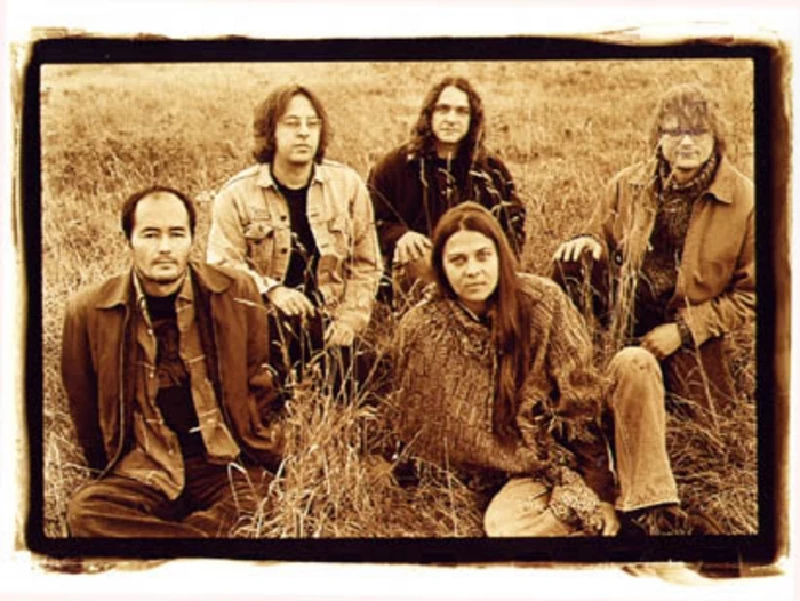
intro
Since 1989 Philadelphia space rock act Bardo Pond have recorded countless albums and toured alongside the likes of Mogwai,Dinosaur Jr and Acid Mothers Temple. Guitarist Michael Gibbons chats to Dominic Simpson about the band's latest album 'Ticket Crystals' and the band's unique methods of recording
There must be something in the water in Philadelphia. Longtime residents Bardo Pond have been perfecting their art since as far back as 1989. Over countless albums – beginning with 1994’s 'Bufo Alvarius', 'Amen 29:15' and stretching to the current LP 'Ticket Crystals' – the band have constantly expanded and redefined their expansive, narcotic, fuzzy space-rock, embellishing it with both Black Sabbath-style stoner rock riffs and, conversely, John Fahey-influenced acoustic raga workouts. Frequently stretching out and soaring to over the ten minute mark, their blessed-out jams have an uncompromising beauty to them, blessing this stellar collective with tours alongside the likes of Mogwai, Dinosaur Jr, Jackie O-Motherfucker and Acid Mothers Temple. This is all-enveloping spacerock of the highest order. I’m in the restaurant of Cargo, a beautiful venue in east London built into an abandoned railway station; flickering images of fauna adorn a huge screen on the wall of the bar area, and cast translucent images around the busy room. The venue itself is through a curtain in the wall, where you suddenly find yourself in large, cavernous arches, the sound ricocheting brilliantly around the high ceiling and walls. Back in the venue restaurant, guitarist Michael Gibbons, in between finishing his dinner, is reminiscing on the early days of the band, which also comprises Isobel Sollinger (vocals, flute, violin), John Gibbons (guitar), Clint Takeda (bass), Ed Farnsworth (drums), and a Moog player whose name escapes me. “The early years were much like the years now, y’know”, he recalls. “The only difference was that with the very early years we were just kind ofgetting together and we didn’t know how to play anything.” Where you still teenagers at the time? “No, we were basically just out of college, actually, and we just got really interested in free music, and that’s where it started. And we were artists too [a number of the band are visual artists]. So were just started playing free improvised sounds – it was really just kind of that love of making noise and sounds that got us together. Basically we didn’t really learn how to play songs until after about four years, and that’s when things started clicking, and we actually made up songs. But it’s still the same thing.” Since then the sound has morphed and taken in different directions, redefining what Bardo is from the outset. “I think it’s more about redefining. I guess it’s up to you to really say...I don’t know if it’s necessarily branching out too – it’s really the same but I think we got more into recording acoustic guitars”. Indeed, while Bardo’s immersive sound can be seriously heavy, the band have also perfect quiet acoustic interludes on each record, a trend that goes back through their last couple of records. On 'Dilate', a wistful track entitled ‘Favourite Uncle’ has Sollinger’s voice sounding like it was sung through a pipe, while there is some spellbindingly melancholy guitar. The heaviness of 'On The Ellipse', their last album, offered some respite in the shape of ‘Walking Clouds’, a spacey reverb-drenched acoustic workout, with rare vocals from Gibbons. It reflects the various influences that bisect Bardo Pond, with American instrumental folk guitarist John Fahey a particular influence. Fahey’s name has seen much in print recently, with everyone from Six Organs of Admittance to Sonic Youth claiming influence (especially with Fahey’s unorthodox tunings). “Yeah, we love acoustic music. All the songs are written like on acoustic, and then we play them on electric.” The long, jam-based structures of many of their tracks were never likely to endear the band to the trials and tribulations of recording in a normal studio, with a standard producer and engineer, which is precisely why they set up on their own, Lemur House, around the time of their 1999 album 'Set and Setting'. Not only does this give the band huge control over their sound, but it’s gave them the freedom to release a number of limited CD-R’s of instrumental workouts too, as well as a mind-bogglingly large array of side projects, including Prairie Dog Flesh, Third Troll and Hash Jar Tempo, the latter involving someone called Roy Montgomery – “that’s with a guy from New Zealand”, Gibbons says. “We did play live once. It was only one track, but it was 20 minutes long.” “You can record everything”, Gibbons enthuses of their own studio, “and it sounds good enough to do it. And we do so much stuff.” Recalling the time before 'Set and Setting', when they were in a ‘normal’ studio rather than their own, he elucidates: “Matador gave us the budget to do it. And we did it, but we got kind of frustrated [with being in another studio] because we knew it wasn’t like the real experience of what we do, because we had to go in tired…we had to go into another studio and record…it was just too hard, you know, and it just was against the nature of what we do. So we wound up really wanting to get our own equipment. You know so we could just really relax, and find the music, instead of just…and so we’re in the studio trying to make it write, and not walking out, like, “What the hell just happened?” You know what I mean, that’s what we’ve always did [since then].” Furthermore, the vibe of Lemur House is enhanced by the fact that it is housed in the ICA, an arts complex – “a contemporary arts space”, Gibbon expands, full of artists and musicians, which the band work on and which has some similarities with the one in London (except that Bardo Pond are “the resident band”, natch). The interest in art that the band have explored outside of 'Bardo Pond' is reflected both in the arts space and in the last track on Ticket Crystals, ‘Montana Sacra II’, in which a sample of filmmaker Alejandro Judorowsky threads the obliteratingly heavy dénouement to the album. “That’s just an extension of us making art and doing things. That was like almost a collaboration with him. We projected the movie on this huge wall in the studio…and that tune just happened. His images and visuals – they were so perfect that they wound up as the last thing on the record…and it’s great because we’re so much about improvisation and spontaneous composition or whatever….” This acknowledgement of the marriage of independent and avant-garde film with similar-minded, trippy music reminds me of the Sunburned Hand of the Man performing here at Cargo a live soundtrack to Ira Cohen’s underground classic 'The Thunderbolt Pagoda' – a dazzling 60’s psychedelic fest of various lysergic club sequences, faces bent with treated camera effects like some bad acid trip, and images of hippies in fields blissing out to the gods above. This marriage has its roots in bands such as Popul Vul soundtracking Werner Herzog’s 'Aguire: Wrath of God', particularly in the stunning opening sequence of the film, where a team of conquistadors descend a mountain in the Amazonian jungle near a river, shrouded by mist, in one long take. Bardo Pond’s music, in fact, has many similarities to the ‘Krautrock’ movement of the 70’s (now a much-abused musical term)...are bands such as Neu!, Faust, Can, and Amon Dull II a big influence ? “Huge, yeah”, Gibbons says instantly. “When we started it was all Popul Vuh, Amon Dull II, [as well as] the Velvet Underground, Alice Coltrane, John Coltrane…Krautrock is a huge influence, man...y’know, Faust. Definitely Popul Vuh – big time.” Indeed, the bands huge, woozy, all-immersive drone music not only touches – albeit slightly - on the aforementioned acts that originated from the experimental fringes on the 70’s German music scene, but has also cemented their place in a free-flowing, adventurous and active alternative music scene in America at the moment that takes in everything from Six Organs of Admittance to Sunburned Hand of the Man, to Comets on Fire to Charalambides, to Jackie O-Motherfucker, to Cul de Sac and Wooden Wand, to Bardo Pond’s fellow Philadelphian Fursaxa and back again. Around a week after this gig, all these bands will go on to play All Tomorrow’s Parties, curated by Sonic Youth’s Thurston Moore. It seems only fitting, then, that the band made the transition from the Matador label (home to the likes of Dead Meadow, the Double, and Yo La Tengo), around the time of 'Dilate' in 2001, to ATP Recordings, home of Alexander Tucker (whose accompanied them as support on this tour, and takes to the stage as the interview progresses) and the aforementioned Fursaxa – aka Tara Burke, currently resident in the Pennsylvanian hills, a one-lady sorcerer of strange music who onstage loops flute, keyboards, mandolin, violin and all kinds of instruments into an intoxicating mix. Of course, it’s worth taking into account at this point the vastness of the USA, particularly when considering just how dispersed the above acts are. You could draw a line when tracing the above bands that would start in Boston and stretch down through Philadelphia and all the way to Texas, then heading for the West Coast, from which you would travel up from California all the way to Portland, Oregon. Given such huge differences in location between the different acts, do Bardo Pond still feel part of this scene of ‘freak-out’ bands in America (or ‘New Weird America’, as The Wire dubbed it), with Sunburned at the fore (“and Arthur magazine”, Gibbons nods his head, referring to the left-field publication covering a similar terrain of music, but currently on hiatus), or does the hugeness of the States entrench a kind of isolation? In America, after all, it can be hours in a car journey to get from one big city to another. “Well, ironically in Philadelphia there’s Fursaxa, Espers there, and Jack Rose too”, Gibbons considers, and indeed Philadelphia has its own flourishing scene. It’s tempting to think that in ‘Philly’ and the surrounding hills there’s a strange magic surrealism and blessed-out feel, away from the ardour’s and stress of NYC, which produces such strange, loose music (for want of a better word), from Esper’s madrigal folk-inflicted prog-rock – particularly the fantastic Espers II, with it’s echoes of English folk-rock pioneers Fairport Convention, though more spacey – to Jack Rose’s stunning raga fingerpicking. Together with Fursaxa, all theses idiosyncratic, wonderful acts have, if not quite a unifying sound, a common tripped-out nature to their music. Whether it’s some strange lysergic mushrooms out there in the Pennsylvanian woods I don’t know, but is there something particular about the area that influences Bardo Pond’s music ? “I think there is”, Gibbons considers. “There’s a lot of interesting…y’know, David Lynch had experiences there [Philadelphia], Sun Ra was there, John Coltrane. It’s just knowing that all that stuff was there…”, Gibbons considers. The presence of a master finger picker such as Rose definitely makes it’s presence felt in Bardo Pond'ss more quiet, acoustic-based tunes, with it’s continuation of the lineage going back to the American mystic Fahey and earlier still to Appalachian folk. For Gibbons there’s no contradiction in the tendency to have acoustic tracks sit side-by-side with dense, stoner workouts on many Bardo Pond albums, pointing out that “the people who like Boris also like Jack Rose. But again that’s where we’re at too, whether it’s super-naked or completely submerged in distortion and effect.” Similarly, though, there are times when there work reminds me of Spacemen 3 (particularly 'Hum” off Dilate) and the early 90’s shoegazers. That they can flit seamlessly between these different styles without sounding trite or deliberately eclectic is testament to their strength and adaptability. It’s all part of the same thing for them. Given the ‘free’ nature of your music, do you practice the songs a lot before you record them, or are they generally quite improvised and spontaneous? Do you do a lot of tweaking and overdubs or is it pretty raw? “It’s quite raw – like that song ['Montana Sacra II'] that was raw. I tweaked it only a little bit because it was almost perfect the way it is. Other songs we tweaked like crazy. So it just depends on the nature of what it is…we basically record everything and we do a lot of takes until we get the great take… And then we take it apart from there. Some of them stay almost the same.” Does playing with Dinosaur Jr and Mogwai differ from doing a gig with, for example, Sunburned Hand of the Man ? “It is different. But I mean, the audience for Dinosaur and Mogwai are catching on to Acid Mothers Temple, you know what I mean? And our tour, I’ll tell you the truth, has been much better than it has the last time we were here and the time before that. I don’t know what it is – it just seems like people are more into all this kind of music that’s happening, you know what I mean?” By which he means the kind of left-field American music, with it’s equal debt to Fahey and freak-out rock, getting increasing exposure now (in a relative sense, of course), together with similar-minded strands of music from outside the States – the aforementioned Tucker from England, with his use of psychedelic squeals of guitar, primitive electronics, tape reels, and looped guitars; the tripped-out improv of Vibracathedral Orchestra, from Leeds; Glasgow’s Volcanic Tongue distribution and label (home to Taurpis Tula). And then there’s Japan, of course, which has produced some mind-bogglingly cosmic and out-there music in the shape of Acid Mothers Temple, Ghost, Boris, and established ‘noise’ artists such as Merzbow (active since the early 80’s) and the Incapacitants. Even the Canadian post-rock scene is not a million miles from Bardo Pond’s music, with bands such as Toronto’s Do Make Say Think in particular sharing certain traits. Both favour open-ended jams that often stray outside of the conventions of pop songs, and which retain a warm, organic feel (DMST record in barns), one that is enhanced by the use of violins and flutes - despite the occasional use of electronics. There’s an undeniable looseness to this music that’s unlikely to see them embraced by the mainstream. With Bardo’s history stretching as far back as the late 80’s, do they feel like the precursors to the current scene? “I feel like we chipped away at it way back then, you know what I mean?” Gibbons laughs. “Because it was a really strange time…it was like a heyday in a way, because, I mean, Nirvana came around in those few years, and Sonic Youth got so big in those few years, but then, like, somehow it dropped off around 1992-3. Kurt Cobain killed himself. My Bloody Valentine totally disappeared after ‘Loveless’. So there was this amazing climax of new psychedelic and heavy guitar music that just kind of dropped off, you know – but we were still going. But there really wasn’t…Sonic Youth were still doing kinda weird things, Dinosaur Jr were slowly waking up to things but they were never great, somehow – well, it was still great but different…” He considers his words. I add that there was the grunge scene, of course… “And that never worked”, he nods. I’m sure you’ve never been considered part of the grunge scene? Not now, clearly, but in the early 90’s ? “No, but I loved Nirvana and I loved what they were doing - I never even think they were grunge, they were just a wild band. But that [grunge] sucked – we’re still dealing with that now. A lot of bands came out of that scene that really sucked, and everyone knows it!” 'Ticket Crystals' is the band’s most varied yet, from the full-throttle opener ‘Destroying Angel’ to the acoustic singalong ‘Moonshine’, and the mammoth 17-instrumental ‘FCII’ – the album highlight for this writer, particularly with its haunting, extraordinary droning violin intro, which sounds like werewolves being summoned on top of a hill. Played by Sollinger, it’s as mesmerising a song opener as you’ll hear for a long time. “We’ve been getting into recording it [the violin] a lot more, so it’s featured a lot more too. She’s got that great drone – do you know Tony Conrad?” he says, referring to the American minimalist composer, who recently collaborated with Faust.There’s much more flute than previous records too. “Some people are really into it – I love the way she plays flute, it just sounds so amazing with the guitars.” Also on the album is a rather incongruous inclusion of a Beatles cover, not exactly something that you’d associate with Bardo Pond. But then this is their way of doing things, and the cover certainly isn’t a note-for-note reprisal of the original. The song in question – ‘Cry Baby Cry’, off the White Album (as it’s nicknamed) – begins quietly with an acoustic guitar and Sollinger’s voice at the front of the mix, before the fuzz and effects submerge the song, until it’s a heavy workout, unrecognisable from the original. It’d be interesting to know what John Lennon thought of it. “The Beatles cover happened because the guy from the BBC asked us to do it for the anniversary of Lennon’s death”. Gibbons explains, adding his sadness at John Peel’s death – “that was a bummer. He was a legend [in the States]. You were lucky to have him”. While 'Ticket Crystals 'displays a varied palette, the band's last album, 2004's 'On The Ellipse' was a super-dense, heavy world. With the exception of the aforementioned acoustic ‘Walking Clouds’, on that album it’s as if the band had become ever more immersed in their own world, shut off from the rest of the world, with it’s rivers of sonic sludge at a funeral tempo. Orbiting their own solipsist world, perhaps it’s no coincidence that it emerged from the trauma of 9/11. There’s a claustrophobic, minimalist, and intense feel to the album, something of which is echoed in Wolf Eyes’ claim in an interview with this writer that a collaboration album they were working on at the time, with Black Dice, rapidly changed diversions with its mood once NYC was driven by powerful, obsessive post-9/11 fever. “It’s got that [same] tempo all the time”, Gibbons admits of 'On The Ellipse'. “That album seeped out of that [9/11]…that period was so devastating that it permeated everything we were doing…it was so strange a time in so many ways – just so sad.” The closer, ‘Night of Frogs’ is a terrifying, nearly ten-minutes chaos of roaring guitar noise, reaching inexorably to a final climax, a tornado taking everything in its wake. Although the new album’s closer, ‘Montana Sacra II’, has a similar feel, the intervening work breaks up the mood with different styles. This is not to say that 'On The Ellipse' is an inferior work, just that it’s a tough and difficult work to take in, with little respite. What are you planning on doing next? “I’ve no idea. I think we’re just going to stay working in the studio, and see what happens – I mean, that’s basically the way it’s always been. You know what I mean, I think we’re gonna keep going and if we get to put records out and tour, then we’ll do that. We still love it and we keep going.” And with that, we part, as I catch the last of Tucker’s set. That night, Bardo Pond light up Cargo with a triumphant set, the band running though the new album as well as their back catalogue. As bassist Takeda pummels his bass in front of his amp, bringing forth some low end feedback, the band finish with a devastating version of ‘Montana Sacra II’. Here’s to All Tomorrow Parties and Bardo Pond’s endless, giant Universe of drone, fuzz and sky-scraping jams.
Band Links:-
https://www.facebook.com/pages/Bardo-Pond/171784216179634http://www.threelobed.com/bardo/
http://bardopond.com/
https://twitter.com/lemurhouse
Picture Gallery:-
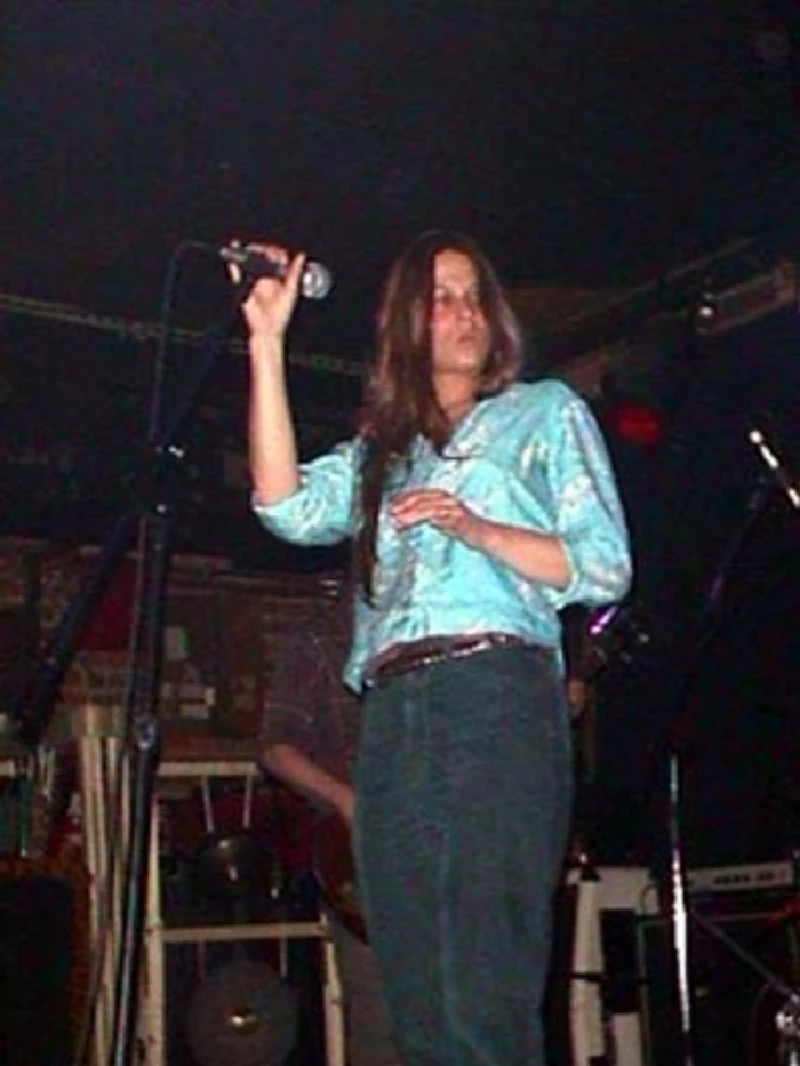
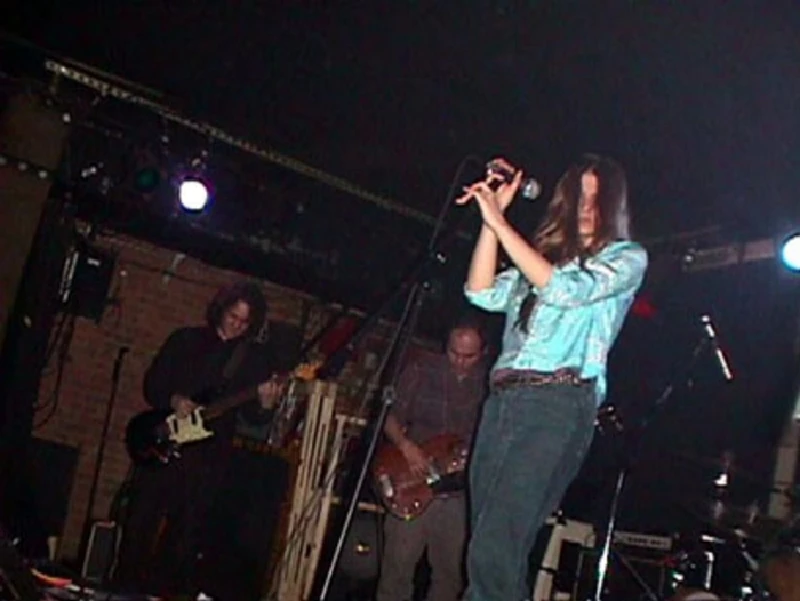
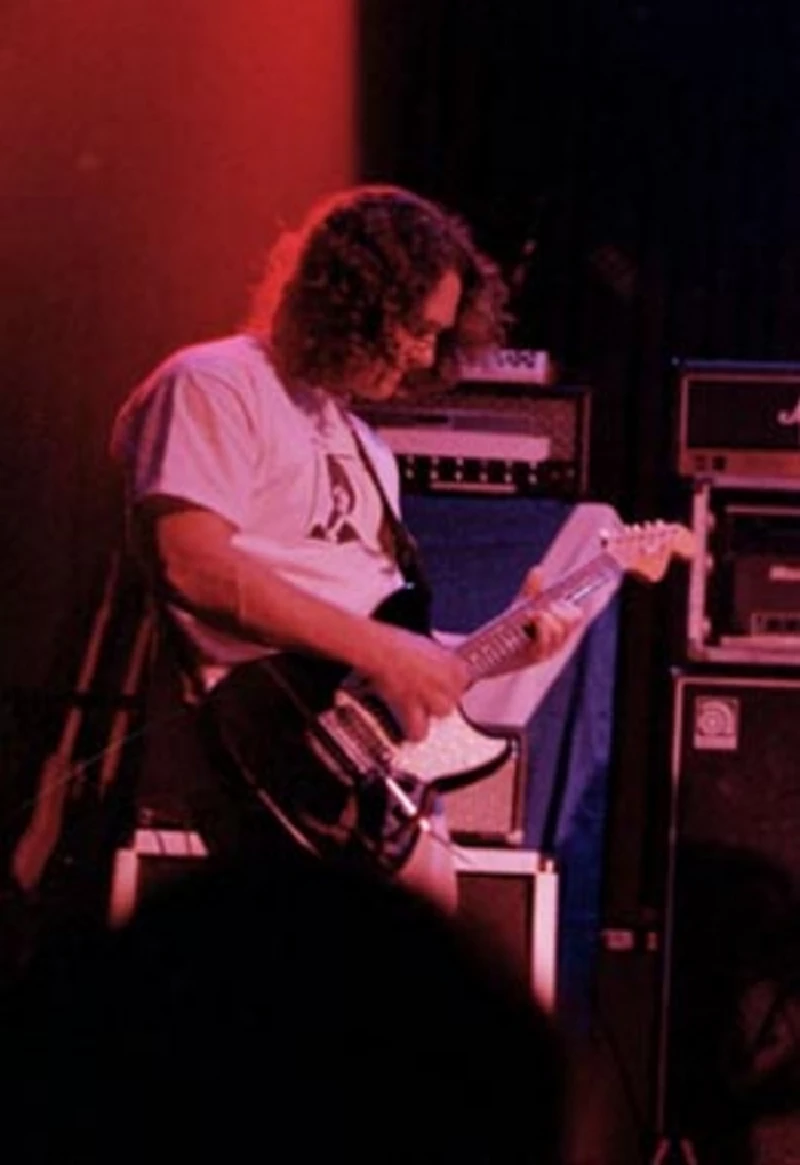
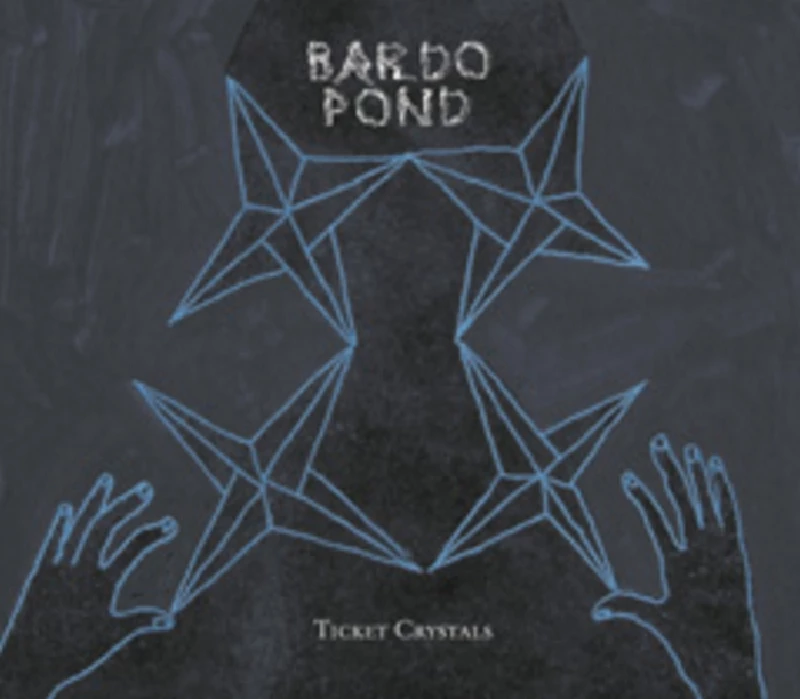
reviews |
|
Under the Pines (2017) |
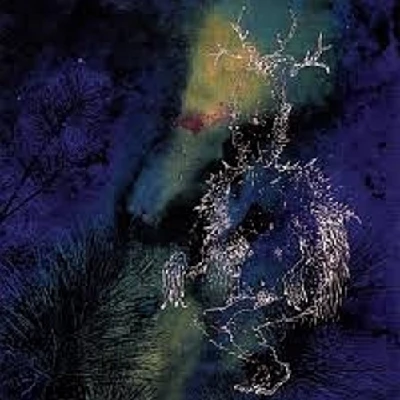
|
| More than welcome return from the American purveyors of psychedelic rock Bardo Pond with an album that rises above all clichés of what fuzzed out guitar noise should sound like |
| Peace on Venus (2013) |
| Bardo Pond (2011) |
| Ticket Crystals (2006) |
most viewed articles
current edition
Carl Ewens - David Bowie 1964 to 1982 On Track: Every Album, Every SongArmory Show - Interview with Richard Jobson
John McKay - Interview
Colin Blunstone - Thalia Hall, Chicago, 16/7/2025
Billie Eilish - O2 Arena, London, 10/7/2025
Bathers - Photoscapes 1
Visor Fest - Valencia, Spain, 26/9/2025...27/9/2025
Loft - Interview
Sir Tim Rice - Interview
Robert Forster - Interview
previous editions
Manic Street Preachers - (Gig of a Lifetime) Millennium Stadium, Cardiff, December 1999Heavenly - P.U.N.K. Girl EP
Beautiful South - Ten Songs That Made Me Love...
Oasis - Oasis, Earl's Court, London, 1995
Peter Perrett - In Dreams Begin Responsibilities Interview Part One
Boomtown Rats - Ten Songs That Made Me Love....
Prolapse - Interview
Coldplay - Wembley Arena. London, 16/8/2022
Pixies - Ten Songs That Made Me Love...
Trudie Myerscough-Harris - Interview
most viewed reviews
current edition
Davey Woodward - Mumbo in the JumboSick Man of Europe - The Sick Man of Europe
Lucy Spraggan - Other Sides of the Moon
Amy Macdonald - Is This What You've Been Waiting For?
Phew, Erika Kobayashi,, Dieter Moebius - Radium Girls
Bush - I Beat Loneliness
Suzanne Vega - Flying With Angels
Alice Cooper - The Revenge of Alice Cooper
Blueboy - 2
Cynthia Erivo - I Forgive You
Pennyblackmusic Regular Contributors
Adrian Janes
Amanda J. Window
Andrew Twambley
Anthony Dhanendran
Benjamin Howarth
Cila Warncke
Daniel Cressey
Darren Aston
Dastardly
Dave Goodwin
Denzil Watson
Dominic B. Simpson
Eoghan Lyng
Fiona Hutchings
Harry Sherriff
Helen Tipping
Jamie Rowland
John Clarkson
Julie Cruickshank
Kimberly Bright
Lisa Torem
Maarten Schiethart